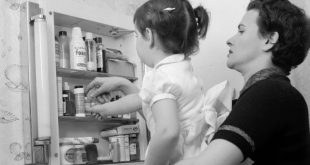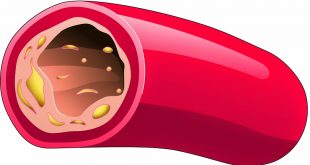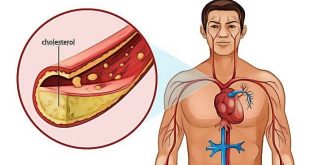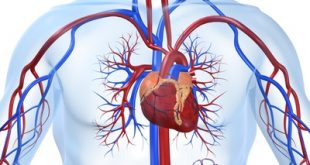1) Myth: High blood pressure runs in my family. There is nothing I can do. I will get it too.
High blood pressure can run in families. If your parents or close blood relatives have had high blood pressure, you are more likely to develop it too. However, change in lifestyle can help prevent high blood pressure. These changes include:
- Eat a heart-healthy diet, which includes limiting sodium to less than 1500 mg per day.
- Enjoy regular physical activity.
- Maintain a healthy weight.
- Manage stress.
- Avoid tobacco smoke.
- Comply with medication prescriptions.
- If you drink, limit alcohol.
2) Myth: I don’t use table salt, so I’m in control of my sodium intake and my blood pressure isn’t affected.
In some people, sodium can increase blood pressure. But controlling sodium means more than just not taking salt. It also means checking labels, because up to 75 percent of the sodium we consume is hidden in processed foods like tomato sauce, soups, condiments, canned foods and prepared mixes. Watch for the words “soda” and “sodium” and the symbol “Na” on labels; these words show that sodium compounds are present.


3) Myth: I use kosher or sea salt when I cook instead of regular table salt. They are low-sodium alternatives.
Chemically kosher salt and sea salt are the same as table salt – 40 percent sodium – and count the same toward total sodium consumption. Table salt is a combination of the two minerals sodium (Na) and chloride (Cl).

4) Myth: My blood pressure is high only because I drink so much coffee.
Caffeine’s effect on the body, and particularly blood pressure, is still widely debated. Some studies have shown that for people who don’t have caffeine on a regular basis, drinking coffee, tea, some soft drinks, chocolate and headache remedies may cause blood pressure to go up – but only temporarily. When having your blood pressure taken, you may want to avoid coffee for several hours before in order to get an accurate reading.
5) Myth: I read that wine is good for the heart, so I can drink as much of it as I want.
If you drink alcohol, including wine, do so in moderation. Heavy and regular use of alcohol can increase blood pressure dramatically. It can also cause heart failure, lead to stroke and produce irregular heartbeats. If you drink, limit consumption to no more than two drinks per day for men and one drink per day for women.
6) Myth: I feel fine. I don’t have to worry about high blood pressure.
Many people have high blood pressure for years without knowing it. High blood pressure is often called “the silent killer” because it has no symptoms. You may not be aware that it’s damaging your arteries, heart and other organs. Don’t make the mistake of assuming symptoms will alert you to the problem of high blood pressure. Everybody needs to know their blood pressure numbers. Diagnosis should only be made by a healthcare professional.
7) Myth: The only way to control high blood pressure is with medication.

If you’ve been diagnosed with high blood pressure, medication is extremely important to keep it under control. But, along with medication, there are also lifestyle habits such as eating healthy foods and getting regular physical activity that can help keep your blood pressure in a healthy range.
8) Myth: I have high blood pressure and my doctor checks it for me so I don’t need to check it at home, too.
Because blood pressure can fluctuate, home monitoring and recording of blood pressure readings can provide your healthcare provider with valuable information to determine whether you really have high blood pressure. If you do, blood pressure monitoring can assess whether the treatment plan is working. It’s important to take the readings at the same time each day, such as morning and evening, or as your healthcare professional recommends.
9) Myth: One abnormal pressure reading at the doctor means I have high blood pressure.
One high reading is not enough to determine that you have high blood pressure. A doctor will diagnose hypertension only after several readings taken over a period of time. If you have one high reading, you should have it measured at least two more times on separate days to check whether it is consistently high. Your doctor may advise you to abstain from caffeine or physical activity several hours before the test to get an accurate reading.
10) Myth: I was diagnosed with high blood pressure and I have been maintaining lower readings, so I can stop taking my medication.
High blood pressure is a lifelong disease. Follow your healthcare professional’s recommendations carefully. Medication should be taken every day for the rest of your life. By partnering with your healthcare team, you can successfully reach your treatment goals and enjoy the benefits of better health.
Reference
- American Heart Association Updated:Aug 12,2014
| Last Reviewed | : | 15 September 2017 |
| Writer | : | Dr. Ainol Shareha Binti Sahar |
| Translator | : | Dr. Ainol Shareha Binti Sahar |
| Accreditor | : | Dr. Zarina Banu Binti Abdulla |
 PENDIDIKAN PESAKIT Kementerian Kesihatan Malaysia
PENDIDIKAN PESAKIT Kementerian Kesihatan Malaysia



